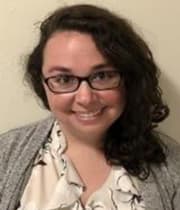Navos peer bridger shares her Substance Use Disorder experiences to help others
In 2009, Debra Kelly made the life-changing decision to get help for substance use disorder (SUD).
“My addiction was a circle that I kept going around in,” she explains. “I needed to get some help. I got tired of doing the same thing every day.”
Debra went into intensive outpatient treatment and then graduated into treatment for alcohol, other substances, and mental health. During her journey, King County Adult Drug Diversion Court introduced her to MultiCare Behavioral Health Network’s Peer Bridger program at Navos.
Since 2013, this partially donor-funded program has helped inpatient psychiatric unit clients successfully transition back into the community by connecting them with certified peer support counselors. Known as “peer bridgers,” each of these counselors has had recovery experiences with mental health and/or SUD themselves.
“Drug court sent me to the peer bridger training because I had been volunteering to give back to women that were struggling like I had. And I was able to overcome some of the challenges that they were going through,” Debra says. “The peer bridger certificate was the first thing I’ve had in a long time that was of value.”
As a peer bridger, Debra establishes a collaborative relationship with Navos clients while in the hospital and partners with them on their recovery journeys for up to 90 days post-discharge.
“All of us specialize in supporting clients through our own experiences — they’re our peers,” she says. “I encourage clients to walk with me, as I’m still walking along. Clients want to be treated with dignity and respect, period. In order for them to recover, they have to have that.”
“The peers are the magic behind this program’s success,” says Cindy Spanton, director of hospital outreach services at Navos. “Debra excels at relating because she’s lived there and is able to walk beside them through this part of their journey. Those connections allow people to work on what’s happening with them.”
Thanks to Debra and peer bridgers like her, many individuals have been able to successfully discharge from Navos and continue their treatment. The program has helped prevent future crises and re-hospitalizations. And, even more can be achieved with community financial support.
“I can’t tell you how blown away I am so often with each peer bridger’s dedication and how they work through obstacles like nobody’s business,” Cindy says. “But we can only serve a small number of our clients here, because it’s a specialized program with limited funding.”
Support recovery journeys in your community by donating to the Peer Bridger program through the MultiCare Behavioral Health Foundation.




